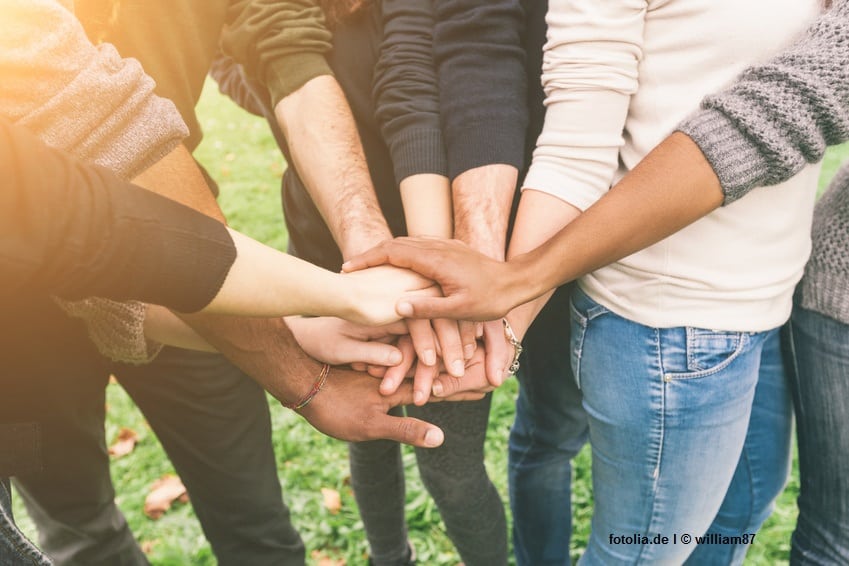The Positive Encounters (PoBe), which take place every two years, are considered Europe's largest HIV self-help conference, at which, among other things, it is discussed which focal points will be addressed in so-called themed workshops before the next PoBe. Matthias Kuske from the "Diversity" themed workshop, for example, would like to see more intensive cooperation between the various groups within the HIV community - and sees gays in particular as having a responsibility in this regard.
Matthias, you are a participant in the "Diversity" themed workshop, which is hoping for more diversity at Positive Encounters 2016...
Exactly. The PoBe 2014 gave us the task of considering for PoBe 2016 how the topic of diversity could be brought into the positive community in general, but also how it could be utilised specifically for PoBe 2016.
Why did you choose this topic?
At the last PoBe, we dealt intensively with the fact that we have very many and very different groups within the positive community, but they often work alongside rather than with each other. For example, we have a very large community of positive gay men, who are definitely the largest group. But there are also positive women, migrants and a few straight men. We have realised that it would make absolute sense for everyone involved to find interfaces in order to simply pull together.
What do you want to achieve with it?
It's quite simple: we need to understand diversity even better as a strength. This diversity brings new ideas, visions, impulses or even "resources". A simple image: At PoBe 2014, we were visible as a positive community at CSD Kassel. We weren't "the positive gays" or "the positive women" or "the positive Mirant_innen". If we can convey this image not just at PoBe, but permanently, then we will be perceived differently and have greater power.
Why are there these individual groupings?
To put it bluntly, it is of course easier for each group to settle into "its" family of choice. Everyone likes to surround themselves with the people they feel comfortable with. In terms of the positive community, this means that gays just sit together in the same way as women or migrants do. First of all, that's an observation and I think that's a good thing. This kind of feeling of togetherness also releases positive forces. And we don't just want that within the individual groups. Imagine the power if the individual groups saw themselves as an entire community.
In your opinion, which group still has some catching up to do?
Let me put it this way: gay positives are not only the largest group within the positive community, they also have a really big lobby. They are opinionated and vocal, they are self-confident in public. That's wonderful in itself, but I think that this heightened awareness also gives rise to a certain responsibility.
What does this responsibility look like?
As it is precisely the gay positives whose demands are received in the media and discussed in society, I see it as our duty to also consider issues that are perhaps more likely to be dealt with by other positives when making precisely these demands. However, before this can happen to a sufficient extent, we must first deal with possible processes and structures that ideally fuel this basic attitude. At PoBe 2016, we therefore want to find solutions for how we can manage to cooperate more, work together and consciously recognise diversity. A first step is therefore to start thinking about other groups in our own work in a very practical way.
How do you explain the fact that thinking and acting as a diverse, positive community is only now picking up speed?
This is simply because the topic of HIV is a weak link. In other words, just because we are all positive doesn't mean that we feel so connected that we all work together. Our own identities as gay men, women and migrants are much stronger and therefore more identity-forming than the topic of HIV.
What has the Diversity workshop achieved so far?
The themed workshop has met twice so far. The first aim was to clarify the term diversity for us and to deal with the topic on a theoretical level. Ultimately, we came to the conclusion that there is a concrete connection between HIV and demarcation within the HIV community.
And what would that be?
There is probably no medical diagnosis that is as socially stigmatised as HIV infection. As a result, many people experience a kind of self-stigmatisation and non-acceptance of their own existence. As a result, the potential for identification with HIV is low. HIV alone offers little in common to unite the various subgroups of HIV-positive people.
In the themed workshop, did you also talk specifically about what PoBe 2016 can do to consolidate the idea of diversity?
We will definitely propose to the PoBe preparation group, which will meet in the autumn, that diversity be declared the guiding and cross-cutting theme for 2016.
If the preparatory group supports this, it would mean, for example, that workshops are organised inclusively, meaning that they are equally interesting and accessible in terms of content for all parts of the positive community.
The Positive Encounters 2016 will take place in Hamburg from 25 to 28 August 2016.










